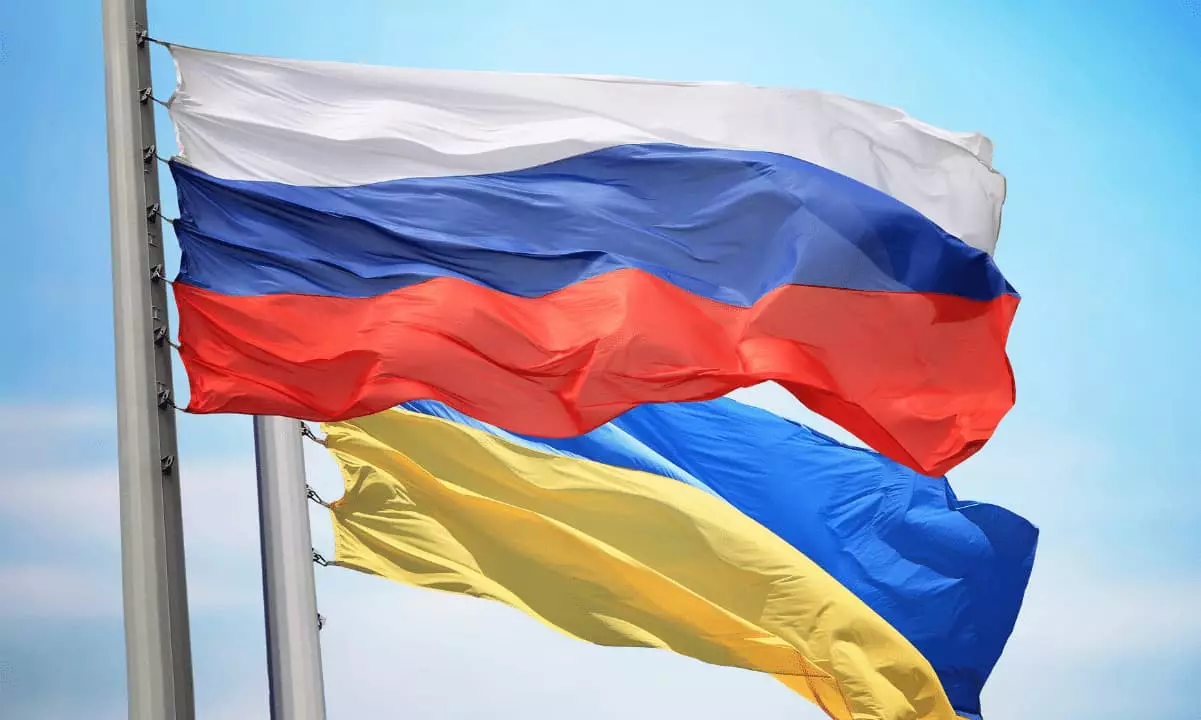The recent surge in cryptocurrency adoption in Eastern Europe, particularly within Ukraine and Russia, highlights an intriguing aspect of the global crypto economy. Both countries now rank sixth and seventh in the Global Crypto Adoption Index, according to Chainalysis. Remarkably, Russia has climbed six positions from the previous year, a development that is noteworthy given the backdrop of war and escalating sanctions it faces. This trend reflects a response to financial pressures, with crypto becoming a viable alternative for many.
The data provided by Chainalysis indicates that Eastern Europe has become a powerhouse for cryptocurrency transactions, boasting a staggering $182.44 billion in inflows specifically into Russia, while Ukraine follows closely with $106.1 billion. This influx underscores the growing reliance on decentralized financial systems. The rise of decentralized exchanges (DEXes) has been particularly pronounced, with approximately $149 billion in total crypto inflows recorded in the region. This is significant—Ukraine’s DEX inflows alone increased by over 160% to reach $34.9 billion, while Russia’s surged by over 173% to $58.4 billion.
The growth in decentralized finance (DeFi) transactions across these two nations reveals critical trends. In Ukraine, there was a remarkable surge in large institutional transfers, with a staggering increase of 361.49% in transactions exceeding $10 million. This points to a bold move by institutional investors seeking to navigate market volatility amidst geopolitical tensions. Conversely, Ukraine also saw dramatic growth in smaller retail transactions, suggesting a more grassroots acceptance of cryptocurrency. The increases of 82.29% and 91.99% in large and small retail deals respectively reflect a diverse adoption of crypto as a means for everyday purchases and financial stability.
As financial sanctions tighten against Russia, domestic crypto services are gaining traction. Chainalysis’ findings reveal that while centralized exchanges have witnessed flat web traffic, no-KYC (Know Your Customer) exchanges in the Russian language have gained prominence. This shift signals a critical transformation in how locals are managing their finances, with an increased need for anonymity and flexibility in the face of economic instability.
Such exchanges provide an accessible means for individuals to convert traditional fiat currencies into cryptocurrencies, allowing them to preserve wealth and transact with greater ease amidst the financial fallout. This situational context illustrates how cryptocurrencies are not merely speculative assets but are rapidly evolving into practical tools for financial resilience.
The shifting dynamics of cryptocurrency adoption in Eastern Europe illustrate a profound and adaptive response to economic and political upheaval. Ukraine and Russia are setting trends that might influence how the rest of the world perceives and utilizes cryptocurrency. The burgeoning reliance on decentralized exchanges, the dual trend of institutional and retail investment, and the adaptability of local crypto platforms paint a picture of a region increasingly embedded in the global crypto economy. As we continue to observe these developments, it’s clear that the landscape of finance is being reshaped, driven by necessity and innovation.

